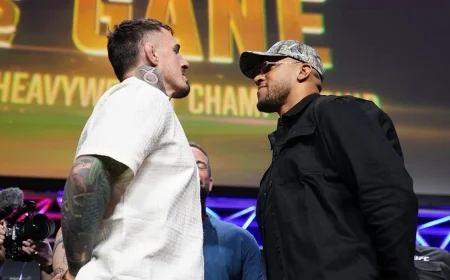Discover Why Connor McDavid’s New Contract Could Be the Best Bargain in 21st Century Sports

The Remarkable Contract Decision of Connor McDavid: A Deeper Look at the Implications for the NHL
Connor McDavid, widely heralded as one of the greatest players in NHL history, has recently signed a two-year contract extension with the Edmonton Oilers worth $25 million. This decision has far-reaching implications, not just for McDavid but for the entire landscape of professional sports. The contract, set to pay him an average annual value of $12.5 million, has raised eyebrows as it positions him among depth players in other major North American leagues.
Understanding McDavid’s Contract Dynamics
McDavid’s new contract has him earning significantly less than his peers, including other star players like Minnesota’s Kirill Kaprizov and Colorado’s Nathan MacKinnon. While his deal is considered a bargain by many observers, it raises questions about the salary structures within the NHL compared to the NFL, NBA, and MLB.
Here’s how McDavid’s salary stacks up against other major leagues:
- In the NFL, players like Robert Spillane of the New England Patriots also earn $12.5 million annually but play very different roles.
- In the NBA, players like Moses Moody of the Golden State Warriors are valued differently and receive higher contracts based on distinct league dynamics.
- In Major League Baseball, the salary of pitchers can vary widely, but high-profile players are often paid significantly more.
McDavid’s Salary Decision: A Strategic Move
During a recent press conference, McDavid explained his rationale for accepting less money: “Two years at that number makes a lot of sense. It gives us a chance to extend our (championship) window here in Edmonton.” This decision indicates a focus on team success over personal financial gain, highlighting his determination to help the Oilers build a winning roster.
The implications of McDavid’s salary sacrifice include:
- Greater salary cap flexibility for the Oilers to invest in key players.
- Improved chances at a championship, which remains a top priority for McDavid.
- A strategic positioning for a more lucrative deal once he becomes available for negotiation again in two years.
Comparing to Historical Precedents in Professional Sports
McDavid is not alone in making sacrifices for the greater good of his team. Several athletes across different leagues have taken similar stances in the quest for championships, albeit in different contexts:
| Player | Sport | Year Contract Signed | Average Annual Salary |
|---|---|---|---|
| Sidney Crosby | NHL | 2012 | $8.7 million |
| Tom Brady | NFL | 2013 | $11 million |
| Kevin Durant | NBA | 2017 | $25 million |
Through strategic salary management, these athletes enhanced their teams’ chances for success while ensuring they would still have opportunities for significant financial rewards in later contracts.
Conclusion: A Calculated Risk Looking Ahead
McDavid’s contract is not only a testament to his abilities but also a strategic move that mirrors situations across other sports. His willingness to sacrifice for the team may prove beneficial not only for his current franchise but also lay the groundwork for a more lucrative future deal.
As the NHL landscape continues to evolve, McDavid’s approach could set a precedent for aspiring athletes, emphasizing the importance of team success in conjunction with personal accolades. The next two years will be critical for both McDavid and the Oilers, as they strive for championship glory while maneuvering through the complexities of team-building in a competitive sports environment.

































